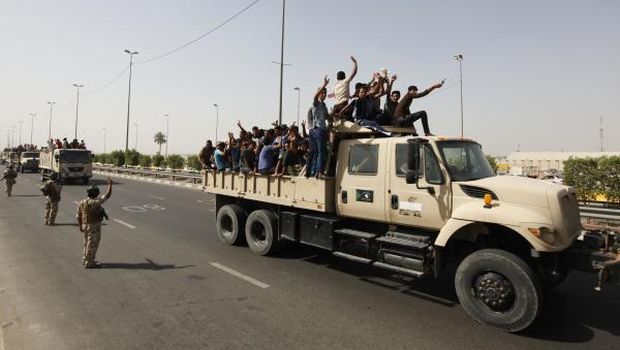They must be either mad or ignorant, those who think that what has happened in Mosul and Tikrit can be repeated in Samarra and Baghdad. They have been told from the outset that these two cities will be difficult to take over for both military and security reasons. Any leniency on the part of the government will result in an inferno that will leave nothing intact in the Middle East. Regardless of who rules Baghdad, or how dire the situation is there, solutions and methods for tackling security in Iraq are yet to be exhausted. If those solutions run out, the potential inferno will bring nothing but mass destruction, which is not really an option.
Immediately after Mosul fell, a new phase of taking defensive measures began to push back against the threat of the Islamist advance on Samarra and Baghdad. I do not hesitate to put forward suggestions to strengthen this push against the threat the Islamic State of Iraq and Syria (ISIS) poses. Any talk of the presence of an effective, military force other than ISIS does not deserve any attention. Many have attempted to present a different point of view by claiming that Ba’athists are providing ISIS with a deceitful cover to facilitate their return to Iraq. After one month, it has been seen that the role of Ba’athists and other non-ISIS fighters has been only marginal. Nobody outside ISIS has dared raise a flag or take control of the areas that have slipped out of government control.
As for the stories about “Tribal rebels,” no one can deny that suffering has prompted young tribe members to carry arms against the government. However, some tribal leaders have carried out their rebellion against the government from the comfort of their hotels in Erbil. They have left the combat zones and continued issuing statements and threats publicly against the government from Iraqi Kurdistan, calling their goals into question. In addition, some of the tribal leaders used to be fervent supporters of Iraqi Prime Minister Nuri Al-Maliki before they turned against him. After a closer look at their statements, one can realize that their threats lack credibility and value. Some of them also claim to have a military rank that neither matches their age or qualifications. Some are accused of scams and of forging bank checks, such as the so-called “Article 56 group.” In fact, those fighting alongside ISIS have provided a cover for the Kurds’ dream of establishing an independent state, which marks the beginning of the new Middle East.
Today in Baghdad there are hundreds of thousands of fighters, whether regular forces or volunteers. Those who have expressed their intention to infiltrate Baghdad will only inflict extreme damage on the Sunni Arabs there, who are in an unenviable situation, psychologically at least. The Sunni Arabs of Baghdad side with the government against ISIS. As for Samarra, it has become an impregnable wall, thanks to its religious and historical significance.
Hundreds of former regime generals and Ba’athist officials live outside Iraq. Only a few of them mistakenly believe that what is going on in Iraq is a popular revolution. Revolutions are measured by their outcomes, not by emotions. The destruction and partition of a country, sparking a civil war that may last for a century and turn the region into an inferno, is not the right move when trying to topple a government or a ruler. This is particularly the case since democratic options are available, if only politicians prove themselves sincere and relinquish their illegitimate interests. I have often written articles in this newspaper criticizing the Iraqi government and the role of Iran. But compromising such a sensitive issue as the unity of Iraq and the future of the people is not an option.
Iraq still suffers from an extreme shortage of weapons, but as it has the necessary funds and the arms markets are open to it, the equation on the ground could change dramatically. It would be in the best interests of Arab and regional countries to stand with Iraq in the face of ISIS in order to protect the security of the region. If the mainstream view continues—that ISIS is a product of the regimes in Tehran and Damascus—we should confront it. On the other hand, if Ba’athists consider ISIS as a means to infiltrate the region, they are committing a crime as serious as the invasion of Kuwait. Siding with Baghdad for the time being does not mean siding with its rulers, who can be changed at any time.
The region is in a dangerous situation, and Egyptian President Abdel-Fattah El-Sisi’s estimation that Iraq is facing the threat of partition represents a valid strategic point of view.
